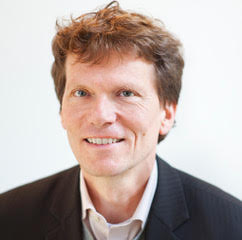Wykład w języku angielskim
The lecture will try to analyze the current tensions and crises of modern society as the result of an inherent contradiction between its structural fabric and its cultural yearnings.
In structural terms, modern society can be defined by its mode of dynamic stabilization. That is to say, it systematically requires economic growth, technological acceleration and cultural innovation in order to reproduce its structure and to maintain its institutional status quo. This implies that year by year more physical, political and psychic energy needs to be invested in order to keep 'the engines running’. By consequence, this produces a constant mode of inward and outward aggression towards nature, the social world and the body. This mode of aggression, however, stands in sharp contrast to the dominant cultural aspiration for more 'resonant’ relationships between citizens (i.e. democracy), between society and nature (i.e. sustainability) and between the self and the body (i.e. mindfulness). The paper will end by delineating the structural possibility of a more resonant future.
Polish
Między agresją a pragnieniem rezonansu: dwa oblicza społeczeństwa nowoczesnego
Wykład będzie próbą analizy aktualnych napięć i kryzysów społeczeństwa nowoczesnego wynikających z wewnętrznej sprzeczności między jego tkanką strukturalną a tęsknotami kulturowymi.
W sensie strukturalnym społeczeństwo nowoczesne można zdefiniować poprzez sposób jego dynamicznej stabilizacji. Oznacza to, że systematycznie wymaga wzrostu gospodarczego, przyspieszenia technologicznego i innowacji kulturowej, dzięki czemu może reprodukować swą strukturę i utrzymać swe instytucjonalne status quo. Wynika z tego, że z roku na rok inwestować trzeba coraz więcej energii fizycznej, politycznej i psychicznej, by „machina działała”. W rezultacie, powstaje rodzaj stałej wewnętrznej i zewnętrznej agresji wobec przyrody, świata społecznego i ciała. Ten rodzaj agresji pozostaje wszakże w ostrej sprzeczności wobec dominującej aspiracji kulturowej do bardziej „rezonansowych” relacji między obywatelami (demokracja), społeczeństwem a przyrodą (zrównoważony rozwój) oraz jaźnią i ciałem (troska). Wykład kończyć się będzie zarysowaniem możliwości bardziej rezonansowej przyszłości.
Hartmut Rosa
Born in 1965 in the Southwest of Germany, Hartmut Rosa got his PhD from Humboldt University, Berlin in 1997. Today, he is director of the Max Weber Center for Advanced Cultural and Social Studies at Erfurt University and Chair of Sociology and Social Theory at Friedrich Schiller University, Jena, Germany. He has been a visiting professor at the New School for Social Research in New York from 2001-2006 and at the FMSH/EHESS in Paris. In addition, he holds a honorary doctorate from the University of Humanistic Studies, Utrecht. He is a co-director of the annual international “Philosophy and the Social Sciences”-conference in Prague and for many years served as vice-president/secretary-general for the Research Committee 35 of the International Sociological Association (ISA). From 2008-2018, he co-edited the international journal Time&Society. He received numerous awards, among them the Tractatus Award and the Paul Watzlawick Ehrenring (Austria), the Erich Fromm Preis (Germany) or the Annual Rob Rhoads Global Citizenship Education Award 2020 (UCLA).
His papers and books have been translated into more than twenty languages. Among his most important books are Alienation and Acceleration (2007), Social Acceleration. A New Theory of Modernity (Columbia University Press, 2013), Resonance. A Sociology of Our Relationship to the World (Polity Press, 2019) and The Uncontrollability of the World (Polity Press 2020). In 2013 Prof. Rosa was included by the 'Nouvel Observateur’ in the list of the 25 most important thinkers worldwide. In the current list (2019) of Germany’s 500 most important intellectuals published by Cicero Magazine, he is ranked in the Top 50 and among the three most important social sciences and humanities scholars.
Polish
Hartmut Rosa urodził się w 1965 roku w południowo-zachodnich Niemczech. Tytuł doktora uzyskał na Uniwersytecie Humboldtów w Berlinie w 1997 roku. Obecnie jest Dyrektorem Centrum Zaawansowanych Studiów Kulturowych i Społecznych im. Maxa-Webera na Uniwersytecie w Erfurcie. W latach 2001-2006 był profesorem wizytującym w New School for Social Research w Nowym Jorku oraz w FMSH/EHESS w Paryżu. Ponadto posiada doktorat honoris causa Uniwersytetu Humanistycznego w Utrechcie. Jest współredaktorem corocznej międzynarodowej konferencji „Filozofia i Nauki Społeczne w Pradze i przez wiele lat pełnił funkcję wiceprzewodniczącego/sekretarza generalnego w Komitecie Badawczym 35 Międzynarodowego Stowarzyszenia Socjologicznego (ISA). W latach 2008-2018 współredagował międzynarodowe czasopismo Time&Society. Otrzymał wiele nagród, w tym Tractatus Award i Paul Watzlawick Ehrenring (Austria), Erich Fromm Preis (Niemcy) czy Annual Rob Rhoads Global Citizenship Education Award 2020 (UCLA). Jego artykuły i książki zostały przetłumaczone na ponad 20 języków. Do najważniejszych należą Alienation and Acceleration (2007), Acceleration. A New Theory of Modernity (2013), Resonance (2019). W 2013 roku Hartmut Rosa został wpisany przez “Nouvel Observateur” na listę 25 najważniejszych myślicieli świata. Na aktualnej liście (2019) 500 najważniejszych intelektualistów w Niemczech, opublikowanej przez Cicero Magazine, znajduje się w Top 50 i wśród trzech najważniejszych badaczy w naukach społecznych i humanistycznych.

